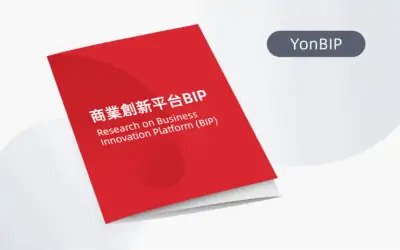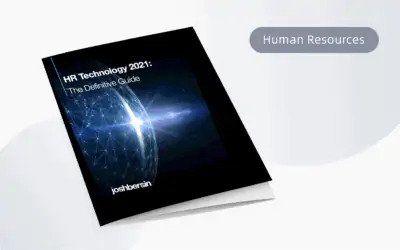yonbip-hr
Intelligent upgrade of YonBIP financial sharing service, moving towards "black lamp accounting factory"

The so-called "black light factory" refers to the intelligent production mode in which the enterprise achieves full automation and unmanned black light production. Realizing the "black light factory" through intelligence is the direction that enterprises are pursuing in the production process. In terms of financial management, if we make full use of intelligent technology to transform financial shared services, financial shared service centers can alsoUpgrade the "accounting factory" from "industrialization" to "intelligence", gradually build a "black lamp accounting factory", and realize the digitization, automation and intelligence of financial shared services.
Grasp the five key points and build an intelligent bridge for financial sharing
The intelligence of financial sharing can start with multiple elements such as organizational model, employee type, service content, service process, and information system.
1. From the point of view of organizational model, The intelligent upgrade of financial shared services usually adds an operation center, whose functions are mainly to collect digital intelligence requirements, design digital intelligence solutions, implement, operate and optimize digital intelligence applications;
Second, from the perspective of employee typesIn addition to human employees, digital employees are added to the intelligent upgrade of financial shared services, and processing, iteration, prediction, and adaptation are handed over to digital employees, freeing human employees to engage in leadership, empathy, creation, and judgment.
3. From the perspective of service content, the intelligent upgrade of financial sharing services is based on service business transactions, and more prominent data empowerment services and predictive analysis services;
Fourth, from the service process point of view, The intelligent upgrade process nodes of financial shared services are mostly completed by digital employees, or by human-machine collaboration. The service process no longer emphasizes standards and uniformity, but pursues personalized processes tailored to customer needs;
5. From the point of view of information system, The intelligent upgrade of financial sharing services puts forward higher requirements for information system data collection, data governance, data storage, data computing power, and data display, and has the ability to build a social-level big data center; it requires information systems to have new artificial intelligence technologies, such as: image recognition, voice recognition, electronic signatures, knowledge maps, expert systems, prediction systems, RPA automation, machine learning, etc.

Apply six important scenarios to realize intelligent financial shared services
There are six important application scenarios for the intelligent upgrade of financial shared services: intelligent accounting, intelligent settlement, intelligent taxation, intelligent business travel, intelligent mall, and intelligent archives. Let's take YonBIP financial sharing service as an example to see what changes intelligentization has brought to the financial work of enterprises.
Smart accounting: standardization, automation and intelligence
Grasp the two design principles of business-driven and management norms, combined with intelligent technology, can realize accounting standardization, automation and intelligence.
After the business activities are completed, it can directly drive the accounting, through the integration of the financial system and the electronicization of business documents and attachments, through the information system, follow the pre-made audit and accounting rules, and automatically complete the accounting audit and accounting work.
During this period, through standardizing and standardizing business and financial rules, business control standards and rules, financial accounting and auditing standards and rules are embedded in the information system, and standard and rule control is automatically completed through the system to improve accounting compliance, efficiency and accuracy.
Smart Settlement: Centralization, Automation and Intelligence
Smart settlement includes smart fund execution, smart fund control and smart fund analysis. Among them, intelligent fund execution includes: fund receipt and payment operations, fund collection and transfer, fund balance scheduling, bank automatic reconciliation and preparation of settlement vouchers, etc.;
Intelligent fund control includes: fund position management, fund plan control, payment schedule control and large amount of fund monitoring, etc.;
Intelligent fund analysis includes: comprehensive query of settlement data, monitoring of fund plan execution, real-time monitoring of fund accounts, analysis and decision-making of fund management, and early warning management of fund risks, etc.
Typical application scenarios of intelligent settlement include: automatic settlement, automatic reconciliation, intelligent fund decision support and intelligent fund risk warning.
Smart Tax: Centralization, Collaboration and Intelligence
Intelligent taxation includes: centralized and large-scale processing of basic tax work, such as invoice issuance, certification, tax declaration, tax accounting, tax payment, tax statistics, etc., freeing tax managers from simple and repetitive basic tax-related business, focusing on the analysis and prediction of business operation data, integrating business and financial data, and carrying out tax planning, risk prevention and control, and value creation;
Taking the business process as the main line, tax management and control are embedded in the whole process of enterprise production and operation to realize the synergistic integration of business, finance and taxation. On the other hand, by unifying tax policy implementation standards and tax-enterprise data interaction standards, tax-enterprise synergistic integration is realized; through direct connection between the enterprise financial system and the Golden Tax System or the introduction of RPA, invoice management and tax declaration intelligence are realized, and big data and big data analysis platforms are fully utilized to analyze and identify corporate tax risks and propose countermeasures to realize intelligent risk management.
Smart business travel: service-oriented, social and intelligent
Smart business travel includes: providing travel services for all employees, realizing no reimbursement for business travel business, no advance payment for employees, and improving employee satisfaction; by building a smart business travel platform, the enterprise integrates with the social Internet business travel platform to realize the organic integration of business travel behavior, cost control, business travel resources and business travel data, which is an Internet social upgrade of expense reimbursement; the business travel platform realizes automatic price comparison, automatic order placement, automatic account reconciliation, automatic checkout, automatic analysis and forecasting.
Smart Mall: Servitization, Socialization and Intelligence
The smart mall includes: providing mall services for all employees, realizing no reimbursement for part of the procurement business, no advance payment for employees, and improving employee satisfaction; by building a smart mall platform, the company integrates with the social Internet e-commerce platform to realize the organic integration of online procurement, cost control, procurement resources, and procurement data;
Smart Records: Go Paperless, Automate and Legalize
Smart archives include: the use of imaging systems to realize the visualization of paper documents, the documents in the information system that need to be saved in the form of files, without the need to print paper documents for storage; one-click automatic filing at the end of the month, automatic filing according to the filing rules, according to one or several serial numbers, and filing into a book; legalization refers to the realization that image files cannot be tampered with and have unique legality, which can be used as the only legal evidence for future audits and tax inspections.

Three necessary stages, the road to intelligent financial sharing services
Enterprises can go through three stages and gradually lead to the intelligentization of financial shared services.
Phase 1: Digital Commons.
Build a shared financial service platform to achieve online, digital, shared, and service-oriented financial reimbursement and financial operations. On the one hand, promote all-staff reimbursement and online approval to realize standardization, online, and digitalization of basic data, bills, and approval processes; Usually start with cost sharing, and gradually incorporate transactional basic financial tasks such as purchase payable, sales receivable, general ledger accounting, fund settlement, tax processing, financial reports, and accounting files into the financial sharing service center. The core goal of this stage is "digital sharing";
The second stage: automatic coordination.
Use application programming interface API and process automation robot RPA to realize the integration of various production and operation systems and financial sharing service platforms. After the business processing is completed, the system automatically completes financial reimbursement, minimizes human intervention, realizes financial reimbursement automation, and realizes business-driven finance. By building a cloud procurement platform and a business travel platform, upgrade procurement and cost sharing to realize business-driven finance. Scenario-based, end-to-end integration of business, finance, tax, capital, and files is realized. Collaborative automation and integration; , Collaborative interaction of employees, improving the convenience and timeliness of collaborative interaction, and paying attention to the needs and satisfaction of the served. The core goal of this stage is "automatic coordination".
The third stage: intelligent value.
Using new technologies of artificial intelligence, such as: image recognition, voice recognition, electronic signature, knowledge graph, expert system, prediction system, machine learning, etc., from the perspective of perceptual intelligence, computing intelligence and cognitive intelligence, etc., to realize the intelligent upgrade of financial services. On the one hand, the service delivery process is automated and intelligently upgraded to further improve service quality and efficiency.
The intelligent upgrade of financial shared services requires solid efforts, perseverance, long-term success, continuous innovation of application scenarios, continuous optimization of existing scenarios, and more importantly, the cultivation of an intelligent development and operation team with intelligence awareness.
About YonBIP
YonBIP (Yonyou Business Innovation Platform)UFIDA is a platform-based and ecological cloud service group that adopts a new generation of information technology and adopts a cloud-native (including micro-service), metadata-driven, middle-platformization, and data-use separation architecture design, covering platform services, application services, business services, and data services. It integrates tools, capabilities, and resource services to serve enterprise and industrial business innovation.
YonBIP hasDigitalization, intelligence, high flexibility, security and credibility, platformization, ecologicalization, globalization and socializationThe eight characteristics are the enabling platform for enterprises to realize business innovation and development through digital intelligence.
Based on the latest big data, artificial intelligence, cloud computing, Internet of Things & 5G, mobile Internet, blockchain and other digital intelligence technologies, YonBIP adopts new-generation technical architectures such as cloud native (including micro-services), metadata-driven, centralization, and data-use separation to build a technology platform, data middle platform, intelligent middle platform, and business middle platform, and focus on eight core areas of finance, human resources, collaboration, marketing, procurement, manufacturing, supply chain, and finance. .


